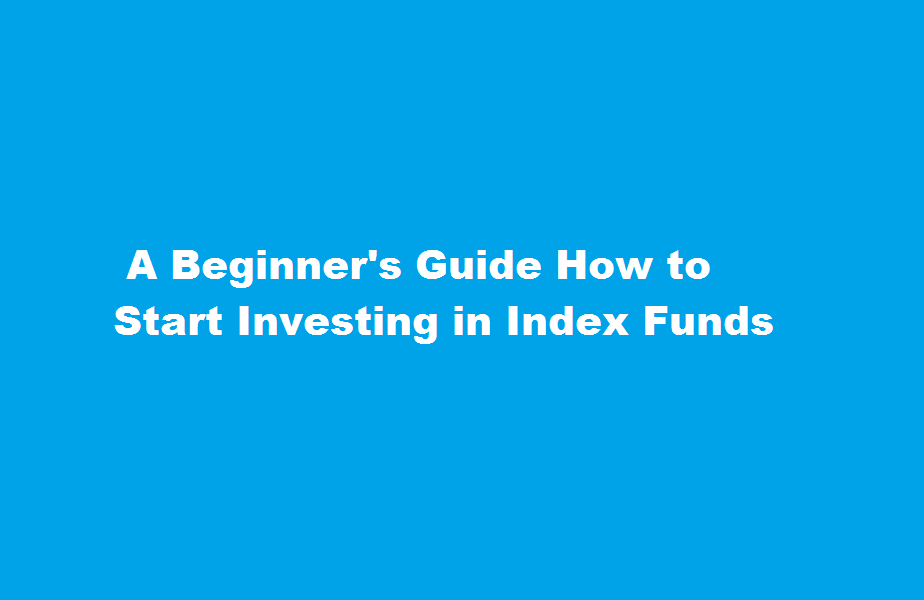A Beginner’s Guide How to Start Investing in Index Funds
3 min read
Introduction
Investing in index funds has gained significant popularity among both seasoned and novice investors. These funds offer a simple and cost-effective way to diversify your investment portfolio while mirroring the performance of an entire market index. If you’re new to investing and looking to get started with index funds, this article will provide you with a step-by-step guide on how to begin your journey towards building wealth through these passive investment vehicles.
Understand Index Funds
Before diving into investing, it’s crucial to understand what index funds are and how they work. An index fund is a type of mutual fund or exchange-traded fund (ETF) that aims to replicate the performance of a specific market index, such as the S&P 500 or the FTSE 100. Unlike actively managed funds, index funds passively track their underlying index, aiming to match its returns.
Establish Financial Goals
Identifying your financial goals is an essential step in any investment strategy. Consider your time horizon, risk tolerance, and objectives. Are you investing for retirement, buying a house, or funding your child’s education? Clarifying your goals will help you determine how much you need to invest and for how long.
Educate Yourself
Take the time to educate yourself about index funds and their benefits. Read books, articles, and reputable online resources that explain the fundamentals of index investing. Familiarize yourself with terms such as expense ratio, tracking error, and benchmark index. Understanding these concepts will empower you to make informed decisions.
Choose a Reliable Brokerage Account
To invest in index funds, you’ll need a brokerage account. Research and compare various brokerage firms to find one that suits your needs. Look for low fees, a user-friendly platform, and a wide selection of index funds to choose from. Ensure the brokerage is reputable and offers excellent customer service.
Determine Asset Allocation
Decide on your desired asset allocation based on your risk tolerance and investment goals. Asset allocation refers to the distribution of your investment across different asset classes, such as stocks and bonds. Index funds are available for various asset classes and market sectors, allowing you to diversify your portfolio effectively.
Select the Right Index Funds
Once you’ve established your asset allocation, it’s time to choose the index funds that align with your investment strategy. Look for funds that closely track their respective benchmarks, have low expense ratios, and a solid track record. Consider factors such as fund size, liquidity, and the fund’s methodology.
Start Investing
With your brokerage account set up and index funds selected, it’s time to start investing. Determine the amount you’re comfortable investing initially and set up automatic contributions if possible. Regular contributions help you take advantage of dollar-cost averaging, a strategy that averages the purchase price over time.
Frequently Asked Questions
How do I start investing in an index fund?
You can buy index funds through your brokerage account or directly from an index-fund provider, such as Fidelity. When you buy an index fund, you get a diversified selection of securities in one easy, low-cost investment.
Is index fund good for beginners?
Index funds are a type of mutual fund or exchange-traded fund (ETF) that hold stocks or bonds to replicate a particular index. They can be a great investment for beginners, but it’s important to understand how to pick the right fund, as well as the pros and cons.
Conclusion
Investing in index funds can be an excellent way to begin your investment journey. By following these steps, you’ll be equipped with the knowledge and tools to start building a diversified portfolio that closely tracks the performance of the market. Remember, patience and discipline are key when it comes to long-term investing success.
Read Also : A Beginner’s Guide to Starting SIP Investments






